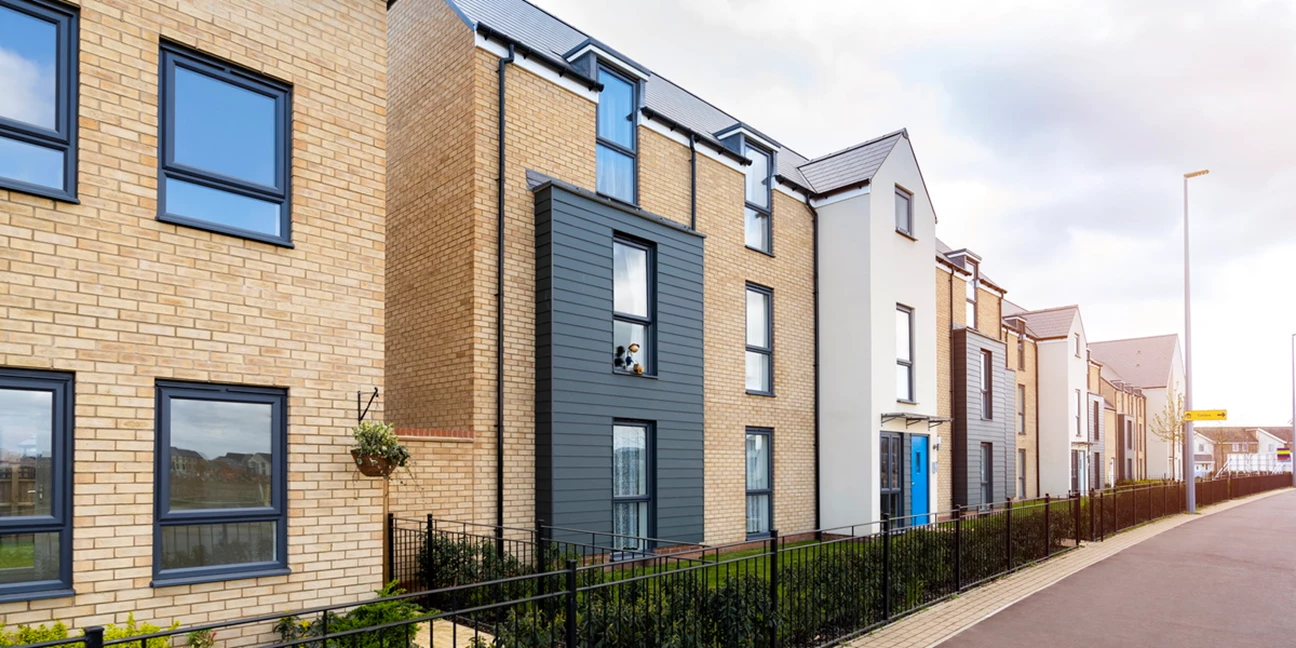
06/12/2021
Lessons In Lending
Atelier’s ethos is to allow borrowers to cut through the hierarchy. How so?
Martin: By giving borrowers access to the decision-makers early on. That's one of the chief reasons Atelier has been able to carve out a distinctive niche in a highly competitive market. From a borrower’s perspective, it means meeting the Head of Credit and the Chief Investment Officer early on in the process, perhaps on-site, and talking through potential supply chain and construction cost issues sooner rather than later. People discover early on that our credit and origination teams work hand in glove. That’s not always the case with other lenders.
Alasdair: Yes, Martin and his team usually discuss new transactions with us once they have done their own high-level assessment so that we can then reach a consensus on the terms we can offer as soon as possible. We are then closely engaged with the broker and the borrower on working towards closing the deal. Meeting the broker and the borrower, ideally on-site, enables us to get behind the numbers, understand the transaction in more detail and tailor the facility to meet the borrower’s needs. It also speeds up the decision-making process; We all like to avoid email ping-pong wherever possible.
You’re saying risk is not always something you can judge simply by looking at a spreadsheet?
Martin: We run the financial modelling right at the start of the due diligence process, and if the numbers don’t work, the deal isn’t going to work. But we also look for things to hang our hat on. Where I feel there is merit in an enquiry, I’ll go to Alasdair with the numbers and we look under the bonnet together. We recently had a deal referred to us where the borrower was already talking to a challenger bank, but it was taking forever and they were losing faith in the process. I spoke to the developer on the phone on a Friday and we were on site by Wednesday and had full credit approval in less than two weeks. This is the certainty of execution we seek to offer.
Alasdair: That’s right. The numbers are of course important but there is so much more to understanding the transaction and what the borrower is looking for and we can also move swiftly when the information we need is available at the start of the process.
And how does that approach differ from your competition?
Martin: Often our competitors’ credit teams will only look at a deal for the first time two weeks before it is due to close, which is the opposite of our approach! We endeavour to give immediate access to decision-makers, to both the broker and the borrower. That surprises developers sometimes, as most have never had that kind of access before.
The global supply chain crisis has been making headlines for more than a year now. How has Atelier helped developers deal with soaring input costs and labour shortages?
Alasdair: Even on the best planned projects, things don’t always go smoothly. In the current environment, there are often times when our initial assumptions have to change. The key here is how quickly we are able to identify potential issues and work with the broker and borrower to find a solution. For example, a valuation might come in on a project that is lower than anticipated and project costs might be higher than first thought. None of these issues necessarily means we are unable to finance the development, we just need to find a way to resolve these. It’s a question of how we address any issues and how we interact with the borrower to find a way forward.
Martin: The fact that we are comfortable right up to 70% LTGDV and beyond on occasion, means a down valuation doesn’t necessarily kill the deal. We can look at the numbers, query the valuation, restructure the LTGDV and find a way forward. Where there are forks in a road, and one aspect of the deal proves problematic, then we try to find the solution.
Specialist development finance brokers seem to be gaining prominence in recent years. How do you see their role?
Alasdair: Most meetings we have are with broker and borrower together. We respect the role brokers play and it’s a case of open communication between all parties from the initial enquiry through to the completion of the development. While we focus on each specific proposal the aim is to establish long-term and close working relationships with both brokers and borrowers based on open and honest communication and a shared professional approach to financing developments. That means dealing with any issues which inevitably arise along the way.
Martin: A good broker won’t be frightened of opening his or her client to that dialogue. There are some brokers who are guarded, and say, ‘you speak to my client through me at all times.’ While we never undermine a broker or go behind their back, it is a requirement that we meet and are able to have a direct dialogue with the borrower. We want to provide input and add value to the developer and discuss things like build costs and contingency, and thanks to our in-house Development Monitors, we are able to do so. It’s unusual for a lender to have that level of expertise on tap, but our DMs often come into meetings so they can advise whether answers are credible and whether a developer really knows their stuff and has the right attention to detail. Good brokers will embrace that; when a broker is too protective of access to their client, it just creates the wrong impression, and that’s not a way to build a relationship.
How do the origination and credit teams integrate at Atelier?
Alasdair: It’s not the ‘them and us’ which sometimes happens elsewhere. I think that's partly because my own background is in origination. That’s why Martin and I complement each other very well and we’re on the same page. There is constant interaction between origination and credit, especially if there are bumps in the road that we need to overcome. Martin will often re-engage with a broker long after a deal has passed into the underwriting phase, all of which helps us to achieve our common objectives of financing good quality development projects for experienced developers.
Martin: That’s right. We say ‘yes’ together or we say ‘no’ together. Nobody has to be a bad cop. If you are as well-funded as Atelier, it’s incumbent upon you to be clear as possible about your appetite to lend. It’s no one else’s responsibility but ours.









